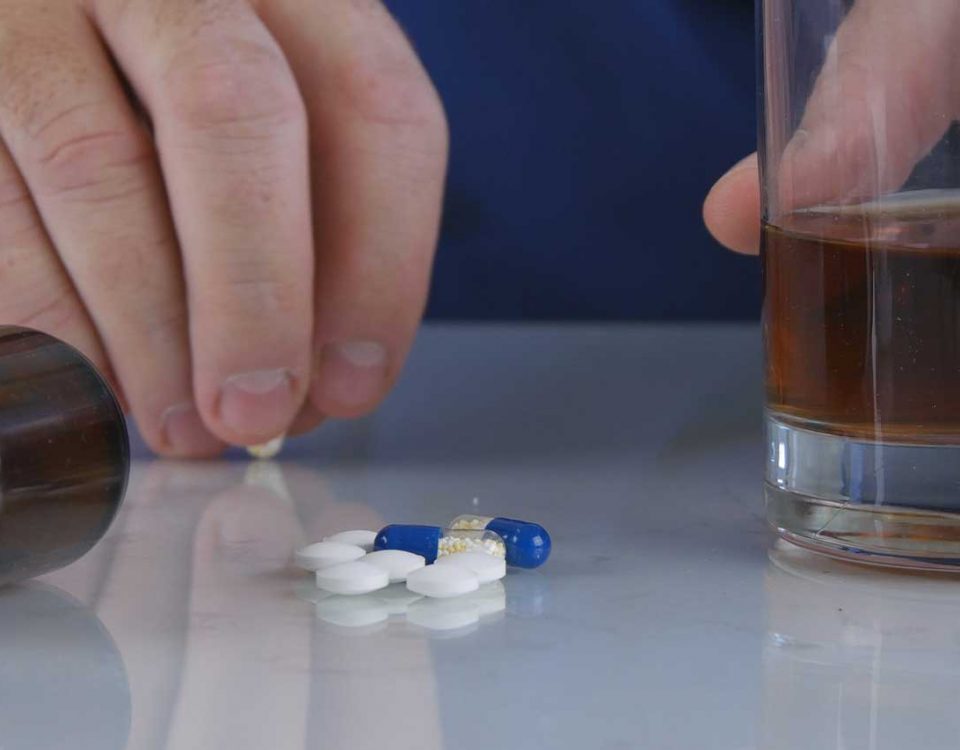Binge eating disorder (BED) is a severe and life-threatening eating disorder characterized by recurrent episodes of eating large amounts of food (often quickly and to the point of physical discomfort.) During binge-eating episodes, people with BED may experience a feeling of loss of control as well as shame, distress, or guilt afterward. Like any other eating disorder, coping with binge eating disorder can be difficult without proper guidance. And although BED treatment is recommended to those with this disorder, we’re also sharing tips on how to recover from binge eating disorder that can contribute to your journey.
8 Tips on How to Recover From Binge Eating Disorder
Stop Dieting
Since the dawn of time (it seems,) people have tried to find quick ways to lose or manage weight. Fortunately, thanks to the decades worth of research on the effects of dieting, we now know that most people who go on intense diets end up gaining back the weight they lost or more. And while dieting can seem like a solution to people with eating disorders like binge eating disorders, it does more harm and not much good!
This is because dieting encourages a “feast and restrict” mentality that interferes with your physical and mental functioning. Although it’s understandable to attribute food and weight to dieting, the reality is that food and weight are not the problems when it comes to healing from binge eating disorders.
While eating behaviors can seem like the main issue from the surface, they’re just a response to a deeper, psychological issue that needs to be addressed to treat the whole of the person’s disorder. With that said, if you’re in binge eating disorder recovery, avoid dieting.
Give Up the Scale
Many people with eating disorders have an unhealthy relationship with their scales. Considering the nature of these disorders, it’s completely understandable; however, that doesn’t mean it’s okay.
When we become infatuated with the scale and see those numbers change or fluctuate, we allow our weight to define us. Weight is not a measure of who you are, your health, or your likeability as a person.
For people with BED, weighing oneself could be considered a reinforcing behavior, one which they entertain to confirm whether they’re “worthy” or “likable” that day. Instead, one of the most beneficial coping mechanisms for binge eating that we recommend is to give up the scale.
Avoid Setting Yourself Up for a Binge
Certain things could place you in the mindset to binge eat, such as stepping on the scale. Letting the number on the scale dictate what you do with food can prevent binge eating disorder healing and contribute to continuous, harmful eating habits.
Other habits or behaviors that could potentially cause you to binge eat include counting calories, comparing yourself to others on social media, or following negative accounts on social media. There are also certain TV shows and movies that may portray binge eating disorders or other problems associated with disturbed eating habits.
If you don’t feel comfortable watching these things or think they could lead to binge eating, then avoid them. Don’t push yourself to do or look at certain things that could contribute to symptoms of BED.
Let Go of Perfection
Despite popular sayings like “practice makes perfect,” striving for perfection often results in little to no progress at all. Trying to be “perfect” can contribute to a black-or-white mentality that leaves no room for forgiveness, balance, or growth. So instead of looking at food and eating behaviors as good or bad, try to create a gray area.
There is no “perfect” meal plan, “good” foods, or “perfect” weight. Our bodies are constantly changing, and it’s impossible to take every little shift in hormones or metabolism or any other function into account. Although a major aspect of eating disorder support is developing healthy meal plans and eating habits, specialists don’t base their clients’ progress on “perfection.”
Additionally, attempting to be perfect when you have an eating disorder can have two harmful outcomes: harsh punishments like restrictive eating and a “why bother?” mentality. Both of these can result in binge eating.
Create Balance in Your Daily Routine
Another one of our helpful binge eating coping skills is balancing your day-to-day life. When your body is out of balance, it throws your hunger off and creates emotional instability, both of which can contribute to binge eating. Instead, practice self-care tips like:
- Take care of your physical health. This refers to treating things as simple as a common cold or allergies, which could throw off your hunger/full cues and emotions.
- Get enough sleep.
- Move your body and stay active.
- Make sure any medications you take are prescribed.
Another critical aspect of learning how to recover from binge eating disorder is regulating your eating patterns. Considering that this is the center of BED symptoms, our center for eating disorders in Philadelphia recommends professional treatment for BED, such as the program we offer at our facility. This way, clients can work with nutritionists and counselors experienced in treating eating disorders to create balance and redefine their eating habits.
Identify Emotional and Physiological Triggers for Binge Eating
BED recovery is also about identifying your emotional and physiological contributors to binge eating. Physiological binge eating usually occurs as a result of food restriction and sometimes in response to hormonal or metabolic changes or substance abuse.
On the other hand, emotional binge eating occurs in response to negative emotions, thoughts, or moods - most people with BED experience both. In binge eating disorder recovery, treatment can teach you how to identify the cause of your binge eating and how to predict any of these changes to avoid giving into harmful eating habits.
Focus on Movement Rather Than “Exercise”
Another major struggle that people with binge eating disorders have is the battle with exercise. For those who grew up with BED, many have been advised by others who have no knowledge of this disorder to exercise to maintain or lose weight. Many people with eating disorders, in general, often turn to extreme or excessive exercising to compensate for their eating habits or try to change their body shape and weight.
However, we want to remove the word “exercise” and replace it with “movement” instead. Rather than placing pressure on yourself to exercise every day, we encourage you to move your body every day. Think about forms of movement you enjoy. These can include walking around downtown, dancing around the house or with friends, horseback riding, roller skating, skateboarding, or anything that gets your body and mind moving.
Get Professional Support
Reach out to an expert for help. Although these coping skills for binge eating disorders are helpful in the recovery process, they are not a replacement for professional treatment but rather a supplement to your healing. With that said, you can reach out to Banyan Treatment Centers to learn more about our binge eating disorder treatment center in Philly and how our specialists can teach you more about BED and coping skills conducive to long-term stability.
To learn how our specialists at Banyan Treatment Centers can help you or a loved one recover from an eating disorder, call us today at 888-280-4763.
Related Reading:
Are Eating Disorders Genetic?
Celebrities with Eating Disorders Warning Signs of Anorexia









